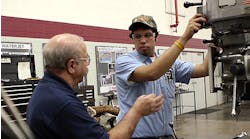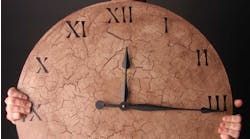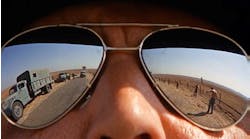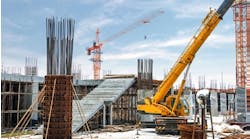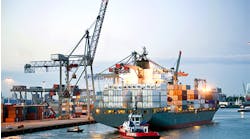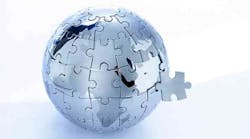There are many risks and liabilities to working in metalcasting operations, but the people who do, as well as the those who supply products and technologies to metalcasters, or who research and teach metalcasting for their daily fare, have one considerable advantage over most of the rest of the world today: Theirs is a subject almost entirely free from ideological conflict. As one who has written a few columns over recent months pondering the world’s descent into incomprehensible chaos, let me assure my readers that this should be seen as a considerable benefit to their general peace of mind.
I can only speculate that this has been true for a very long time, and without relying on historical proof I believe it’s probable that this agreeable atmosphere is somewhat responsible for the long track of forward progress in metalcasting technology; as well as the innumerable examples of individuals and families dedicating long careers to the process and the industry.
I don’t mean that such a life is perfect or such a career is without difficulty: I mean that no one will threaten your life or livelihood for taking a contrary view of how metalcasting is or ought to be done. The same is not true in other avocations — art, academia, clergy, finance, trade, medicine, even heavy industry, all offer examples of ideological conflict that not only punish individuals but ultimately impede the truth.
All of this seems to matter more lately. Having written enough already on the anxiety now so prevalent in the world, I should add that one of the details that makes us so anxious over commonplace violence and suffering is that it is frankly incomprehensible to so many of us. “How can this be allowed to go on?” we wonder. “It makes no sense!”
Trying to make sense of things is the starting point for resolution, for problem solving. Yet, so much of what troubles us daily is described routinely as “senseless violence,” “senseless cruelty,” “senseless bloodshed.” And, don’t forget the more mundane details that also feed anxiety: “senseless regulations,” “senseless procedures,” and “senseless argument” — all phrases I’ve collected incidentally from reporting on national and political affairs.
My ability or yours to make “sense” of something is essential to our feeling of accomplishment and self-control. Thus, “sense” is something that precedes knowledge or understanding, and until the 19th Century the word was commonly interchanged with “emotion.” There is something organic about “sensing” something so that it enters into your awareness, helps to form your reaction, and then resides there within you as “common sense.”
With all that explanation, it’s clearer how something that we find offensive, objectionable, or repugnant is rejected as “senseless,” But then why do so many people in the world still take the senseless approach … resort to violence or cruelty? Closer to home, why is so much of the public discourse obnoxious to us?
The only answer I can offer to that is “human nature,” the “glory, jest and riddle of the world,” according to Alexander Pope. We understand the law of the jungle, yet we can devise and produce systems that challenge our own intelligence. We trust governments and courts to protect us from our own vices, and we promote private enterprise to divert us from more destructive pursuits.
Which brings me back to metalcasting, and the virtues it promotes. Even after thousands of years there is much to be learned about metallurgy, chemistry, solidification, thermal transfer, tensile strength, and any number of other details to the production of cast parts. Learning promotes intellectual progress and human prosperity. Controversies, if any, do not impede progress; they drive it.
Metalcasting is a venue for the best of human nature. At this moment in history we should recognize what we have, and work harder to preserve it.
